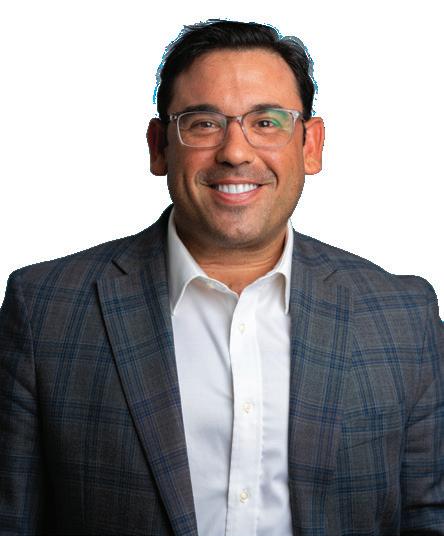INSIGHT
Why ADVOCACY REALLY MATTERS to Our Industry







Our Eagle One insurance policy is a hole-in-one when it comes to protecting your customers from hazards like weather, vandalism, mechanical breakdowns, and more. Our specialized coverages can help your customers avoid life’s sand traps. Trust in Tomorrow.® Talk to us today.
grinnellmutual.com




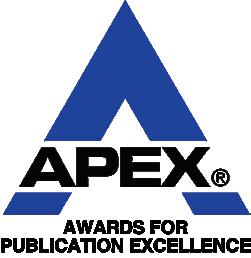
Executive Committee
Chairman of the Board - Allyson Padilla allyson@blanksinsurance.com
President - Patrick Taphorn, CIC, CSRM ptaphorn@unland.com
President-Elect - Thomas Evans, Jr. tom.evans@assuredpartners.com
Vice President - Chris Leming cleming@troxellins.com
Secretary/Treasurer - Cindy Jackman, CIC, CISR cjackman@arlingtonroe.com
IIABA National Director - George Daly george.daly@thehortongroup.com
Mohammed Ali - mali@aliminsurance.com
Charles Hruska, IV - chas@hruskains.com
David Jenk, Esq. - djenk@nwibrokers.com
Rebecca Kohn - rkohn@worthyinsurance.com
Lindsey Polzin - lpolzin@presidiogrp.com
Ray Roentz - ray.roentz@hwcrins.com
Noele Tatlock - ntatlock@unland.com
Luis Tayahua - lt@goldenowlinsurance.com
Sharon Waldvogel - sharon@infinitybrokersinc.com
Andrea Wallace - andrea@aadins.com
Amiri Curry - acurry@assuranceagency.com
Kevin Lesch - klesch09@gmail.com
Jeff McMillan - jeff@mcmillanins.com
James Sager - james@sagerins.com
Luke Sandrock, CIC - lsandrock@2cornerstone.com
Budget & Finance | Cindy Jackman, CIC, CISR cjackman@arlingtonroe.com
Education | Lisa Lukens salibainsurance@gmail.com
Farm Agents Council | Steve Foster s.foster@ciagonline.com
Government Relations | Dustin Peterson dustin@peterson.insurance
Planning & Coordination | Nick Gunn, CIC ngunn@envisionins.com
Technology | Brian Ogden brian@ogdeninsurance.com
Young Agents | Cody Imming cody@imminginsurance.com
Follow us on socials.
Member Support
Director of Information and Technology
Director of Education and Agency Resources
Accounting & Admin Services
Director of Human Resources, Board Admin
Sr. Vice President/Chief Financial Officer
Chief Executive
Director
Director
Office
Rebecca Buchanan (217) 321-3010 - rbuchanan@ilbigi.org
Shannon Churchill (217) 321-3004 - schurchill@ilbigi.org
Brett Gerger, CIC (217) 321-3006 - bgerger@ilbigi.org
Tami Hubbell, CIC (217) 321-3016 - thubbell@ilbigi.org
Jennifer Jacobs, SHRM-CP (217) 321-3013 - jjacobs@ilbigi.org
Mark Kuchar (217) 321-3015 - mkuchar@ilbigi.org
Phil Lackman, IOM (217) 321-3005 - plackman@ilbigi.org
Lori Mahorney, CISR Elite (217) 415-7550 - lmahorney@ilbigi.org
Evan Manning (217) 321-3002 - emanning@ilbigi.org
Kristi Osmond, CISR Elite (217) 321-3007 - kosmond@ilbigi.org
Rachel Romines (217) 321-3024 - rromines@ilbigi.org
Tom Ross, CRIS, CPIA (217) 321-3003 - tross@ilbigi.org
Carol Wilson, CPIA (217) 321-3011 - cwilson@ilbigi.org
n Envision’s proprietary system enables brokers to present unique benefit programs not available through any insurance company
n Envision’s professional, easy enrollment and customer service team delivers seamless processing for your customers.
n Envision’s innovative reporting capability is designed to enable management to make informed decisions concerning their employees’ healthcare costs

My two favorite things occur every year at this time… Taxes and Illinois Legislative Session (if you could see my face, you would note the hint of sarcasm in my expression). I have a unique perspective on the latter as I have been on both sides of that coin as a regulator and now working for the Association. I have seen miracles, hail Marys, failures, successes, brilliance, and blatant disregard for common sense many times while working on the same issue. You learn that nothing is ever dead; bad ideas always make their way around again; good ideas tend to morph into bad ideas; and reasonable change is the hardest thing to get across the finish line. When I was at the Department of Insurance you could guarantee that you would see two things every year: a plethora of workers’ compensation coverage reform bills that would get introduced every year (and to this day still are) and a PBM regulation bill. I could write a book/novel on all the issues that I have dealt with over multiple years, but I will do a small dive into one issue just to give you a little taste of what I dealt with year after year on the same issues. Quite frankly, I likened myself to a hamster on the wheel where there is no finish line. My problem is that I like to solve problems, but the way Illinois works, many times, we just created new problems with laws that we pass or do not pass.

On the issue of workers’ compensation insurance, we were never able to pass well thought out reforms on issues such as causation, reasonable fee schedules, meaningful prescription drug reform or PPP programs (until recently, but still watered down). We finally did get the PPP passed into law, but after numerous attempts and actually given all the other possible changes, PPP had the least effect on creating true cost savings for insurers or employers. There is a fee schedule, but it is not great in corralling costs to where they could still protect workers while still reducing insurance premiums. Illinois workers’ compensation benefits and awards are exorbitant and need to be adjusted to a more reasonable level that could reduce insurance premiums.
The problem Illinois has is identifying problems. If you ask our legislators what the problem is with workers’ compensation insurance, they will tell you the premiums are too high and that company profits are huge. I looked at this issue while I was at the Department and found that workers’ compensation insurers averaged about 2% profit over 40-, 20-, and 10-year periods. Some years, the insurers made 18% profit for a given year, and then some years, they would lose money, but the overall average was 2%. A couple of years ago, the legislature instituted a mild form of rate regulation in an attempt to hold insurers accountable. They failed to realize the problem was not rates, but instead, the rich benefits mixed in with rampant fraud. For instance, an arm in Illinois costs the insurer $439,858, while in Indiana, that same arm is worth $202,050; in Wisconsin, it is worth $201,250, and in Missouri, it is worth $115,100. I always tell my kids that if they are going to get hurt at work, do it in Illinois. You can see how this has been a struggle and will continue to be a struggle until we have legislators who can identify the real problem with workers’ compensation coverage in Illinois. This is one of many revolving issues that our legislators deal with every year and until we stop governing press pops and start trying to find real solutions to problems that Illinois consumers face every day, we will keep this never-ending cycle of bad ideas with no viable solution perpetuating. The good thing is that now that I am on this side, I no longer have to go through the exercise of producing numbers to the Governor’s office that will lead to no substantive or meaningful reform. I liken this to training for a marathon and putting in all the hard work and effort but never running the marathon.
Let us dive into my different experiences as a regulator and in the private sector. On the Regulator side, when you look at laws, you ask yourself – Can we implement this law/rule? Does this solve the problem that the Governor’s office has identified? Does this address the concerns of the various stakeholders? What are the potential unintended consequences? As a regulator, we met with various stakeholders such as consumer groups, insurers, and agents. I participated in meetings with our very own Phil Lackman regarding a multitude of topics. Many of which you probably never knew that the Association participated in drafting, passing, or killing. Phil and the Association were an integral part of licensing reciprocity; compensation disclosure; electronic notification; agency fees; PFTA reform; the 30% law for commercial; Public Adjuster reform; various enforcement concerns; rebating law reform; rebating enforcement; 3rd party total loss payments of tax, title and license; just to name a few.
As a regulator, we had to sift through all of the information in an attempt to make the most informed recommendation to the Director so that they could make a recommendation to the Governor. Many groups would straight out lie or fail to share the pertinent truth (kind of like my daughter) unless you asked the exact correct question. I will give Phil his props here, and it was a big reason why I made the move to leave the State and work for the Association, as Phil always gave the regulator the straight truth even if it was not beneficial to his side, which I know many Directors respected. Phil knew it was about relationships and that we weren’t always going to be on the same side, but the Association’s integrity (which he was the face of) meant something, which I think personally garnered some faith with numerous Directors and caused them to consider his position more carefully with favor.
As a regulator, I also think Phil and the Association chose their battles carefully so as not to get the old (eye roll) “here come the agents again.” Directors and staff always knew that if Phil and the association staff were calling, it was probably a pretty important hot-button issue that the Department should consider. The true problem was when the Governor’s office did seek the council of the regulator and did not want the regulator’s input, but had their own idea of what a law or rule should look like. In those cases, we were given our orders and nothing stopped us from proposing a law. I learned very quickly that the regulator/stakeholder relationship was a very important relationship and needed to be cultivated and considered when doing anything legislatively. As good as Phil and the Association were at crafting bills, they were equally good at killing bills, which is a huge arrow in the Association’s quiver. It was important to collaborate with stakeholders to accomplish anything meaningful.
One example of a governor-driven issue was agent compensation, a hot-button issue nationally. It seemed to be a freight train with no brakes, but Phil was able to MacGyver that train into braking and not moving forward (which I thought no one had a chance of stopping that bill or issue). Phil and the Association messaged the issue perfectly and were able to kill the issue. This issue taught me more than any other issue, that stakeholders need to be involved, especially in important, wide-ranging issues, or you are just spinning your wheels as a regulator as your bill is going nowhere. Can you imagine having to disclose your commissions, including contingent, on every piece of business that you write? If not, it is due to this Association (and Phil). Phil says you’re welcome.


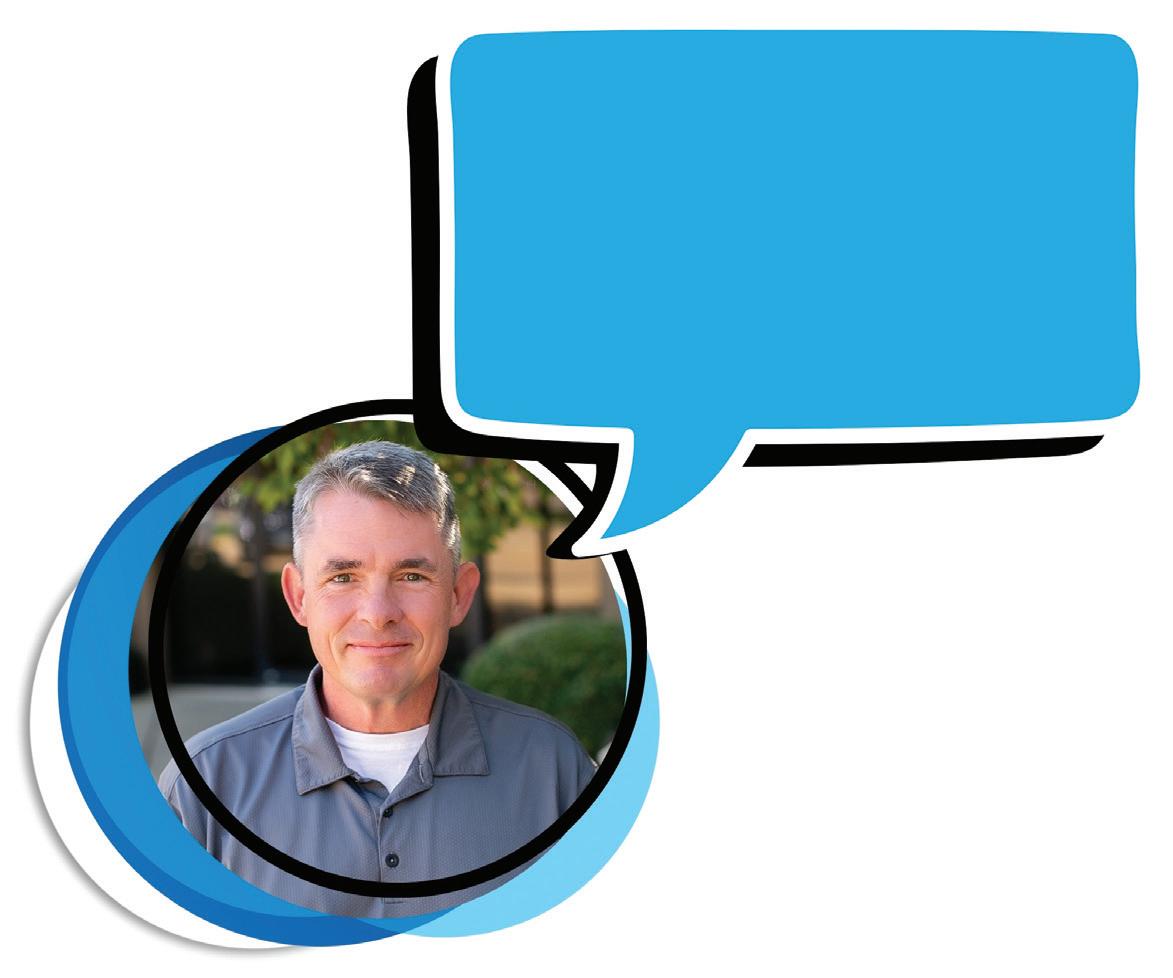
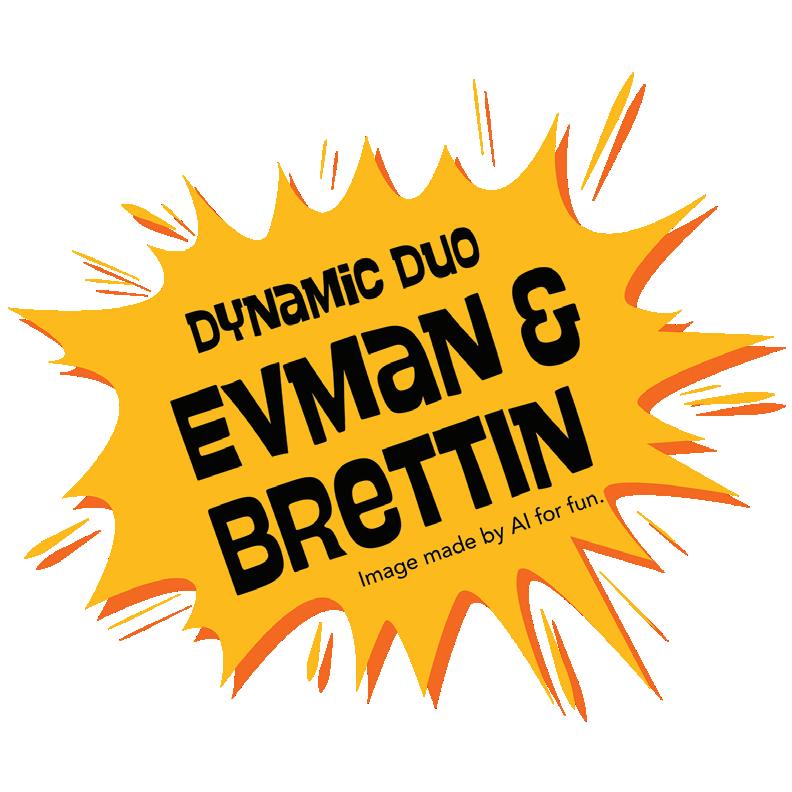
Now let us look at the private sector side of things. Phil has moved on, and in steps, Evan (the new, improved Phil) and I come on board to form, as we like to call it, the dynamic duo Evman and Brettin. I thought this was a piece of cake and would be super easy. How hard could it be, as we would not have to be driven by bureaucracy? Little did I know that it is a two-way street and Phil needed the regulator’s (bureaucracy) support to accomplish things, only to have it messed up by other stakeholders. This side teaches you how hard it is to actually pass a bill that is good for your membership. It took Evan five years to pass Public Adjuster reform as different entities would come in at the last moment and tank the bill. However, persistence paid off, and Evan finally passed the Public Adjuster reform that had been needed for 20 years and had the regulator’s support. There are many more moving parts in the private sector and one misstep can cause you an entire legislative session. In the private sector you have to play the long game and try to plan for many contingencies. The really difficult thing is to decide when to engage and when to retreat. As the regulator, it was easy; we engaged in every issue that the Governor’s office told us was our priority. We focused on maybe 10-15 issues a year, and if it was a big year maybe 25-30. In the private sector, Evan sifts through the 3000+ filed bills and brings 200- 300 to our attention that we either want to weigh in on, support, kill or merely monitor. The scope in the private sector is much broader and timeconsuming. Not to mention this has to be done in a couple of weeks as people rarely give you a heads up that they are filing a bill. We then have to formulate a strategy, response, or plan of attack in an even shorter time frame to either kill, pass, or amend. If you see Evan from January until May 31st, he is a stressed-out individual who goes a million miles an hour.

When Main Street is the main focus.
Running a successful small business is hard work, but finding the right insurance program for your client is easy with West Bend.
Our business insurance program covers liabilities and expenses specifically designed for small business operations.
• Great pricing and exceptional coverage
• Experienced claim representatives
• Convenient options for reporting losses – available 24/7
Learn more about the variety of business line coverages available through West Bend by visiting thesilverlining.com. The worst brings out our best.®
In contrast, when I was a regulator, we got our bills in October or November and could take our time looking at them. Since I have been here, Evan has been fairly successful at getting things done whether it is public adjuster reform or killing auto rate regulation. The thing that surprised me the most is how closely the various associations work together when they need to and how organized those collaborations can become when it is a huge issue such as auto rate regulation. Evan worked with the Illinois Insurance Association(IIA), American Property & Casualty Insurers Association (APCIA), National Association of Mutual Insurers (NAMIC), and various other insurers to participate, message, and educate legislators in order to kill the auto rate regulation bill as it was a terrible bill that would have had terrible unintended consequences on Illinois consumers.
My other private sector take away was a little bill that came about to save an entire sector of business, Farm Mutuals. We saw a cliff coming (so to speak) with reinsurance and, along with the Illinois Association of Mutual Insurance Companies (IAMIC), made up mainly of Farm Mutual companies, tried to pull the alarm on the pending cliff. The problem was that no one really took it seriously until it was almost too late. Evan, IAMIC, and I, along with ex-Director Jennifer Hammer representing NAMIC, worked together to find a solution. The problem was that the Department made it very clear that they wanted Farm Mutuals to go away and did nothing but block and delay any solution. The Department made the mistake of not truly participating in finding a solution, so it forced our
group to pursue other avenues in order to save the industry. Had no action been taken, most, if not all, of the Farm Mutual companies would have been gone/insolvent in a matter of less than two months. Our coalition maneuvered quickly to draft legislation that had to be attached to an existing bill, had a call to action for our membership to contact legislators, and got passed without the Department’s support. Oh yeah, while only having SEVEN days during veto session to accomplish this feat. I thought agent compensation had an 80% shot of going through back in the day, but I thought this had a 99% chance of nothing happening and the Farm Mutuals going away. If you know Evan, you know he is a huge hockey fan and this was his “1980 Miracle on Ice.” The legislation passed, some at the Department became angry as it didn’t go their way, and the rest is history. I hope those at the Department have learned the valuable lesson I learned back in the agent compensation days; things work much better when the regulator and stakeholders work together to find a solution.
Now let’s talk about my other favorite topic … taxes … Just kidding. As always, this is just Brett’s 4 Sense (it dropped to 4 but eggs are still expensive) and I hope it was helpful. You can contact me through my CONNECT and if it is urgent, do not hesitate to reach me through CONNECT. I may be pushing you to CONNECT. If you need any clarification or have any suggestions for future articles please email me at bgerger@ilbigi.org.

Brett Gerger - Big I Illinois Director of Agency Resources and Education - bgerger@ilbigi.org
























































To





By Sue Nester
The Hill, a prominent Washington, D.C.-based political newspaper, has once again named Charles Symington, Big I president & CEO, among the top trade association lobbyists in the nation’s capital this year.
In its announcement, The Hill noted, “The lobbyists on this list are some of the best in the business and have been go-to advocates during a year defined by unprecedented political events, legislative logjams, federal spending cut crusades and big rulemaking swings by the outgoing Biden administration.”
“The Big I is proud to have Charles recognized, once again, by one of the premier political newspapers in the country,” says Todd Jackson, Big I chairman and owner and partner of McGowan Insurance Group in Indianapolis.
“For over two decades, Charles and our outstanding government affairs team have built a top-notch reputation on Capitol Hill that has made the Big ‘I’ the top-of-mind, most credible source on the issues that affect independent insurance agents and brokers. This prestigious honor is well earned.”
“I’m honored to have been named once again to The Hill’s list, but this is really a broader recognition,” Symington says. “Nathan Riedel, our senior vice president of federal government affairs, leads our incredible lobbyists who represent our members so effectively in Washington. Their tireless efforts, dedication, and meaningful relationships result in our association receiving this notoriety year after year. It is their award, not mine.”
Congressional leaders regularly tap the Big I federal government affairs team for its political acumen for sitting on congressional steering committees, raising campaign dollars, hosting political events and strategizing to help members of Congress better serve their constituents and advance top issues. A vital component of the association’s advocacy efforts is InsurPac, the Big I political action committee, which continues to be one of the top agent and broker PACs and one of the leading small business PACs in the country.
Sue Nester is Big I strategic advisor and can be reached at susan.nester@iiaba.net.


By Nathan Riedel
The 2024 federal election results, with Republicans winning back the White House and Senate while maintaining control of the House, were widely viewed as a mandate to fix the economy, stem the tide of illegal immigration, and take a new approach to foreign affairs with an “America first” agenda. During the first month of his Administration, President Donald Trump has sought to fulfill the promises he made on the campaign trail, reflecting a commitment to conservative principles, economic growth, and national security. He has moved at a frantic pace, issuing a record number of executive orders, helped the U.S. Senate move quickly to confirm his cabinet, and controlled the message.
The President has demonstrated his commitment to implement a more favorable regulatory environment that fosters competition, free markets and sends power back to the states. He has downsized federal departments and agencies and established the Department of Government Efficiency (DOGE) to recommend structural changes to the size and scope of the federal government. As part of his deregulatory stance the financial services sector is likely to face much less scrutiny from the Department of Labor, the Federal Trade Commission, and the Consumer Financial Protection Bureau, among others.
With such narrow margins in Congress, the President will need to use the bully pulpit to achieve meaningful legislative victories. Republicans control the House by a one seat majority, 217 to 215, until two vacancies are filled in Florida on April 1 and another in New York at a later date. Republicans also control the Senate by a small, but more manageable margin of 53 to 47. Passing major legislation with such a delicate majority will be challenging and require President Trump to exert significant influence early in his Administration. One of the first things he is eyeing is major tax legislation to reinforce a signature accomplishment of his first term in office – the 2017 Tax Cuts and Jobs Act (TCJA).
Much of the TCJA is set to expire at the end of 2025, including the 20% small business tax deduction, also known as section 199A of the tax code. Congress is expected to act by midyear on major tax legislation that would address this deduction, as well as a handful of pledges that President Trump made on the campaign trail. Among other things, those include no tax on tips, no taxes on social security,
reducing the corporate tax rate to 15% for corporations that make their products in America, and removing the cap on State and Local Tax (SALT) deductions. It remains to be seen just how many of these campaign pledges can fit into one large tax bill.
Congress will be looking for revenue generators to offset the cost of a large tax package and the Big I will be playing defense in several areas. Congress could make changes to the current employer health benefits tax exclusion. The employee-sponsored insurance exclusion will cost the federal government an estimated $5.6 trillion in government receipts over the coming decade, making it the single largest tax expenditure.
The tax-exempt status for 501(c) organizations, such as trade associations, also faces a significant threat. Conservative think tanks have proposed taxing all non-donation income and eliminating tax-exempt status. This includes membership fees, investment income, trade show income and fees for service. Changes in this tax-exempt status would undoubtedly impact associations and the services that they provide to their duespaying members.
The Big I is actively involved in discussions with the House Ways and Means Committee and Senate Finance Committee, as well as key congressional leaders, advocating for independent agents and their businesses. Advocacy on this issue will be a cornerstone of the 2025 Big I Legislative Conference, which is scheduled for April 30 through May 2 in Washington, DC. The gathering of nearly one thousand individuals is the largest and most impactful advocacy event in the insurance industry.
Another issue that will be highlighted during the Big I Legislative Conference is legal reform. Abuse of the legal system is a significant problem and adds considerable costs to the insurance industry, which are then passed along in the prices that consumers pay. In 2023, federal courts docketed 339,731 civil cases, a 24% increase from the previous year, and studies show that every American household pays an estimated $3,600 in “tort tax” per year.
An especially troubling trend is the unchecked way foreign entities and governments are financing and subsidizing
litigation in American courts. Third party litigation funding, also known as TPLF, is a growing multibillion-dollar industry with sophisticated investors threatening the integrity of the U.S. court system with foreign investors avoiding any U.S. tax obligation. To address the problems posed by foreign interference, the Big I supports legislation that would require disclosure of third-party litigation funding (TPLF) parties receiving payment in civil lawsuits.
The Big I is also supportive of legislation that would tax TPLF investors at the time of jury award or settlement. The tax would be levied solely on the funders and would not create a new tax on actual plaintiffs or their attorneys, nor would it limit traditional law firm financing or disrupt postjudgement financing arrangements. Members of Congress have expressed interest in this approach since it would serve as a deterrent, while adding revenue to the federal treasury through taxation.
The Big I is also working to address the insurance market crisis by encouraging disaster preparedness. As witnessed recently with hurricanes in the southeast and wildfires in the west, catastrophic natural disasters are increasing in frequency and severity at an alarming rate. Efforts to mitigate risks and reduce exposure to these types of events are not keeping pace, despite studies showing that for every dollar spent on preventative measures the taxpayer is saved approximately $6 in future losses. Risk mitigation and proper land management makes homes more resilient, protects families from natural disasters and reduces the post-event costs that would otherwise be borne by the American public.
State governments are increasingly establishing mitigation grant programs that enable homeowners to prepare in advance for earthquakes, windstorms, and wildfires. However, these grants are currently subject to federal taxation. Earlier this year, bipartisan legislation called the “Disaster Mitigation and Tax Parity Act of 2025” was introduced into the U.S. Senate. The bill would eliminate federal taxation of these state grants and encourage the implementation of muchneeded mitigation measures.
The Big I also supports the “Fix our Forests Act,” which passed the U.S. House of Representatives earlier this year with strong bipartisan support. Among other things, the bill would simplify and expedite environmental reviews so that forest management projects can be implemented quickly and end frivolous litigation that delays projects from beginning. The Big I is encouraging the Senate to introduce and pass this important legislation so it can be signed into law.
Additional federal issues that the Big I is focused on include a long-term reauthorization of the National Flood Insurance Program (NFIP), passing a new five-year farm bill that would strengthen the Federal Crop Insurance Program (FCIP), ensuring that any federal data privacy legislation does not disadvantage small businesses, and protecting the state regulatory system by encouraging the elimination of the Federal Insurance Office (FIO).
Nathan Riedel is Big I senior vice president of federal government affairs and can be reached at nathan.riedel@iiaba.net.

Rather than attempt to be all things to every kind of business, we focus on the ones we know best—restaurants and bars, grocery and convenience stores, medical clinics and auto service shops—to deliver outstanding property, casualty and workers compensation insurance. Deep niche expertise, with insight into unique business risks, is how we cover the details that make the biggest difference to our policyholders.
To discuss an agency appointment, give us a call at 888.5.SOCIETY or visit societyinsurance.com DELIVERING MORE BY

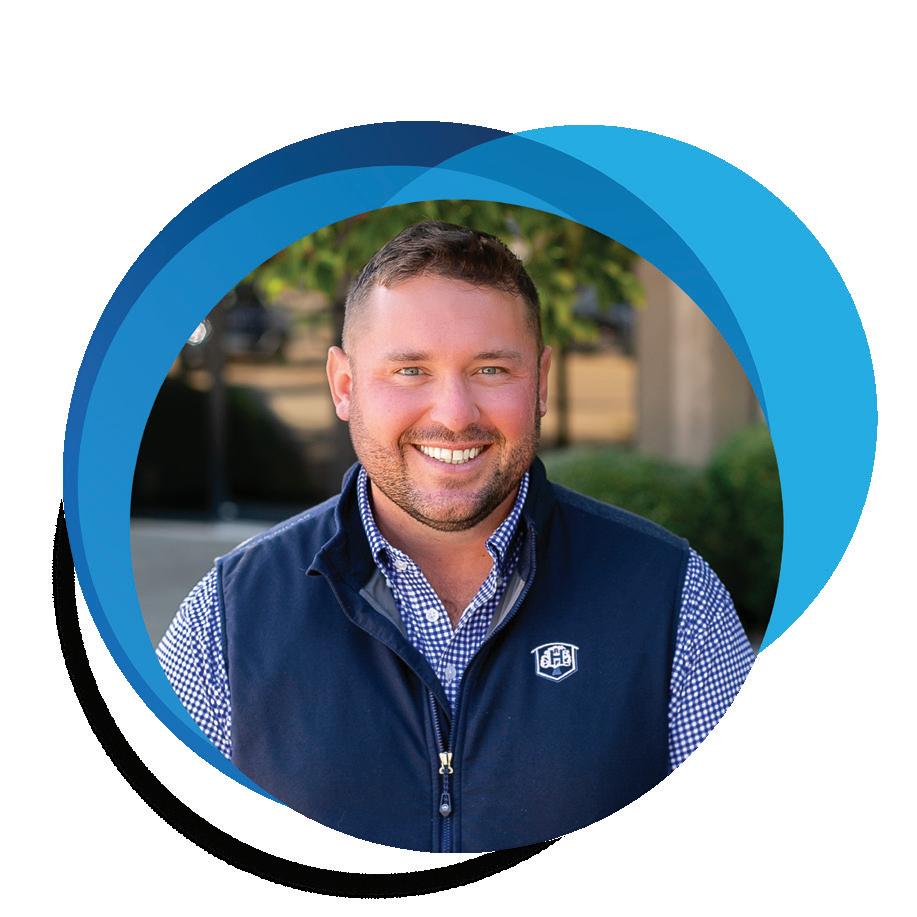
It’s hard to believe that I started my seventh year in January as the Director of Government Relations for Big I Illinois. This is a brief tenure compared to our CEO, Phil Lackman, who led our Advocacy team for nearly three decades. In my first year, it was a lot to take in. I never really understood just how much the insurance industry and our members are affected by various bills in the Illinois General Assembly.
For your edification, thus far, roughly 6,500 bills have been introduced in the General Assembly. We track about half of those bills and separate them into 22 different silos. It’s certainly a lot. Independent insurance agents not only write several different product lines in property and casualty, life, health, flood, crop, workers’ compensation... the list goes on. However, you’re also an employer, and hundreds of bills affect our members in various aspects of their business lives.
This year, we face several initiatives that could alter the insurance industry as we know it. Several bills have been introduced regarding rate regulation for both auto and home insurance. Several more bills have been introduced restricting a company’s ability to underwrite based on several factors including age, sex, credit, and more.
Each year, the challenges facing our industry are significant. Our advocacy efforts play a vital role in shaping the future of the insurance industry. As the industry evolves, so do the needs of our members and their consumers. Navigating these changes ensures that our industry remains responsive to the needs of our members.
Big I Illinois has been the leader in advocating for the interests of its members and the industry as a whole for over 125 years. Effective advocacy requires persistence and a longterm perspective, as it may take time to achieve meaningful change. Additionally, we must remain persistent as we tend to see the same bills introduced year after year, such as rate regulation. Rate regulation is the perfect example of why having a long-term perspective is critical. Our members understand that this could negatively impact the industry, as we have seen in other states that have enacted rate regulation.
One of the biggest reasons why many of our members join the association is because of political advocacy. We take that responsibility seriously, serving as the voice of our members in Illinois and Washington, D.C. Effective legislative lobbying and advocacy efforts are essential for American businesses. When you look around the country, and in Illinois, the amount of money spent on lobbying is staggering. Millions of dollars are raised for interest groups aimed at attacking the insurance industry across the country. We know we cannot outspend our opponents, but it is essential we push hard to raise funds for Big I Illinois State PAC (our state political action committee) and InsurPAC (our federal political action committee). Healthy political action committees provide better opportunities to engage with and develop relationships with top legislators.
We not only need more members to contribute to our political action committees, but we also need more members to get involved in our events. Insurance Industry Legislative Day is Wednesday, March 19 in Springfield. Attending this event allows members to hear from leaders of several insurance trade associations discussing the most impactful bills going through the Illinois General Assembly. Additionally, it is a great opportunity to hear from the insurance chairs, the Department of Insurance, and minority spokespersons in the insurance committees. The Legislator Reception that evening is an excellent opportunity to meet your local legislator and start or enhance your relationship with them.
Also, a reminder the Big “I” Legislative Conference in Washington D.C. is Wednesday, April 30 – Friday, May 2. Find out more at www.independentagent.com/Events. It is a wonderful experience to visit and advocate for your industry with your members of congress and network with other IIABA members across the country.
I want to thank you for being a member of this great association. It is a great honor to represent our members every day at the Illinois State Capitol, one that I take very seriously. I sincerely appreciate all of you and hope to see many of you at our upcoming events. Please do not hesitate to contact me if you ever have any questions or concerns.
Contact Evan at emanning@ilbigi.org.
By Evan Manning

How long did you serve as our Association’s Director of Government Relations?
I just completed my 30th anniversary with Big I Illinois and have been the CEO for nine years, so 21 years as the Director of Government Relations.
You’ve been advocating for the insurance industry even before you joined the association but during your tenure with Big I Illinois, what were some of the most impactful bills you were able to pass into law?
During my first two years, I led the team to successfully pass the Producer Tort Reform package, which remains in statute today. It codified a “standard of ordinary care” vs a fiduciary standard when placing coverage, and a 2-year statute of limitations on all tort actions against producers. When the standard of ordinary care statute was challenged in court, I led the process of filing an Amicus Brief with the State Supreme Court. The Supreme Court’s decision not only upheld the statute but strengthened it. The two statutes combined have saved independent agents untold millions in reduced E&O premiums and a stable E&O market in Illinois.
Immediately following the US Supreme Court decision in Nelson vs Barnett, allowing banks to sell insurance in states where they were prohibited, we began crafting legislation on how banks would be permitted to sell insurance in Illinois. Over the span of two years, we negotiated a compromise which became a national model (and the Illinois Bankers Association CEO lost his job over).
Under my leadership, we passed legislation regulating PEO’s, specifically targeting how they were underwriting workers comp. A rewrite of the commercial cancellation/non-renewal statute, defeated all efforts from the Attorney General and individual legislators to require agents to disclose their compensation in the wake of Elliot Spitzer’s lawsuits in New York. Clarified the Rebating Statute with a DOI bulletin. Filed a complaint, and successfully shut down Farm Credit Services crop insurance rebating scheme and codified independent agents ownership of expirations, which has proven very valuable in a number of instances.
Can you remember some of the initiatives you successfully defeated?
Well, we held the banks off for several years until the Supreme Court decision. I’ll never forget some of our members, in the wake of the decision, just could not accept the reality and questioned our position that the question became not if banks could sell insurance but how they were going to be able to do so. We fought off dozens of health insurance mandates for years, but eventually many passed. We fought off several different attempts to create a universal health care system at the state level and quite a few proposals to put the state into the insurance or financial services business, which would have resulted in subsidized and unfair competition.
Advocating is so much more than passing and defeating bills, but I’d like to hear what advocacy means to you.
You’re correct. Advocacy encompasses four areas, all critical to an organization’s success. The most important aspect is an engaged membership - one that stays informed on both state and federal issues and builds relationships with their elected officials. Second, have a well-funded PAC and other resources to assist legislators in their campaigns. Third, understand the media and how to get your message out beyond the membership. Finally, employing an individual to be there every day, coordinating all three areas mentioned above.




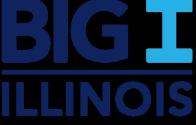
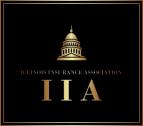

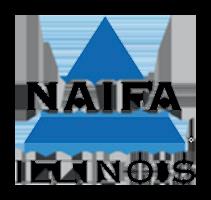
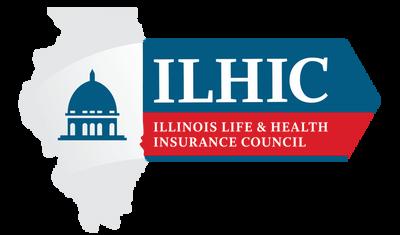
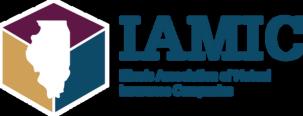



Let’s switch gears and discuss how lobbying has evolved over the years. What key differences stand out to you between lobbying during your tenure and today?
There have been a lot of changes, some good, some not so good. Let’s start with the obvious. Back in the early 80’s, when I started, there was much more balance; the ratio’s in both chambers were close, the majority of legislators were moderates, in both parties, and that led to fairly balanced, well-crafted legislation. Today, both parties at the state level have taken redistricting to an extreme. Districts are so packed one way or another the only race is the primary, and subsequently you get far right or far left candidates. When you have districts that are competitive, both parties tend to nominate more moderate candidates, and whoever wins really must be more moderate on the issues and in their voting record. While our job is to stay on point with issues impacting our membership, it has become more difficult to navigate the process with doctrinaire thinking and personalities. It was also easier to develop relationships for most of my early years. Most legislators were not concerned about going to dinner and socializing with lobbyists. Today, political parties and the media are always looking for a “gotcha” from lobbyist expense reports, and therefore, most shy away from going to dinner or a drink after session. Technology has drastically changed the process. “Back in the day,” there were no cell phones, no internet, you were at the Capitol complex every minute they were in session. We would stay around the rail most of the day, sometimes sitting in a staffer’s office, but we were at the Capitol to watch the entire process. We used pay phones to check in back at our offices. We used mail and, eventually, fax machines to communicate with our membership. Today, committee and floor debates are fully broadcast on the General Assembly website, witness slips are filed online, and any good lobbyist has dozens, if not more, of legislators’ cell numbers. It’s not unheard of today to lobby from some fairly remote places! To be clear, technology has mostly improved the process.
You talk about the time you spent developing relationships and how much time you spent at the capital. Why do you think it is so important to develop working relationships with legislators?
Relationships are key for members in the district and myself as a lobbyist. It is basic human nature and communications 101. You get to know someone, their background, family, and priorities. You provide accurate and timely information. You develop a level of trust. Once that is established, you can deliver your message in a concise manner and the legislator will take that into account with all of the other information they receive. It is just much more difficult if you don’t have that trust and credibility. As I mentioned above, with the current atmosphere, it is much harder to develop that level of mutual respect/understanding of each other.
In your opinion, how has relationship-building changed over the years? With advancements in technology and the internet, I no longer have to camp out on the rails, waiting for amendments to drop. However, when information wasn’t as easily accessible, it seems that spending time with legislators played a much bigger role in advocacy. Do you feel that shift has impacted the way relationships are built today?
Yes, given all the time we were at the Capitol together, it was much easier to develop the relationships. One of my mentors taught me, “don’t just see them when you need something, spend time with them when you don’t need anything.” That’s much more difficult to do today.
We both agree that developing and maintaining relationships with legislators is vital to being a successful lobbyist, but one thing that doesn’t get as much attention to helping us become successful lobbyists are our members who volunteer their time and expertise to serve on our Government Relations Committee. How important is it to have a robust and diverse Government Relations Committee?
Our members, Government Relations Committee members, in particular, are so important. There are some basic insurance concepts I could articulate well, but there were dozens of issues for which I relied on our members. Particularly when we were negotiating with insurance company lawyers whose only experience was theoretical. I have two members with dozens of years of work comp experience. Let’s just say we educated hundreds of individuals over the years during our negotiating sessions. Shout out to Chuck Hruska, Luke Praxmarer, George Daly, Pat Muldowney, Rebecca Woan, and many others.
How can our members get involved in advocacy efforts for Big I Illinois?
Pay attention, read our communications, and understand that when we ask you to take action, we’re trying to protect your business. And please, I know many members, particularly since we live in Illinois, are cynical about politics, but contribute to our state and federal PAC’s, it is part of the process and a very important one. If you’re too busy to join us at state legislative day or our Federal Legislative Conference, for crying out loud, give your fair share!
It’s worth noting that in 2011, Phil was elected to a one-year term as Speaker of the Illinois Third House, the professional organization for registered lobbyists in Illinois. In 2016, he was inducted into the Samuel K. Gove Illinois Legislative Intern Hall of Fame, which recognizes former legislative interns whose careers exemplify distinguished public service.
Most recently, Phil served as President of the Independent Agent Association Executives (IAAE).
Phil, thank you for your time and expertise. More importantly, thank you for the incredible legacy you’ve built leading our association’s Government Relations efforts for so many years. Your dedication and professionalism have earned the deep respect of every current and former member of the Illinois General Assembly. Our members have been well served by your leadership, and I have been incredibly fortunate to have you as a mentor. Thank you for your service, your guidance, and your unwavering commitment to independent agents.
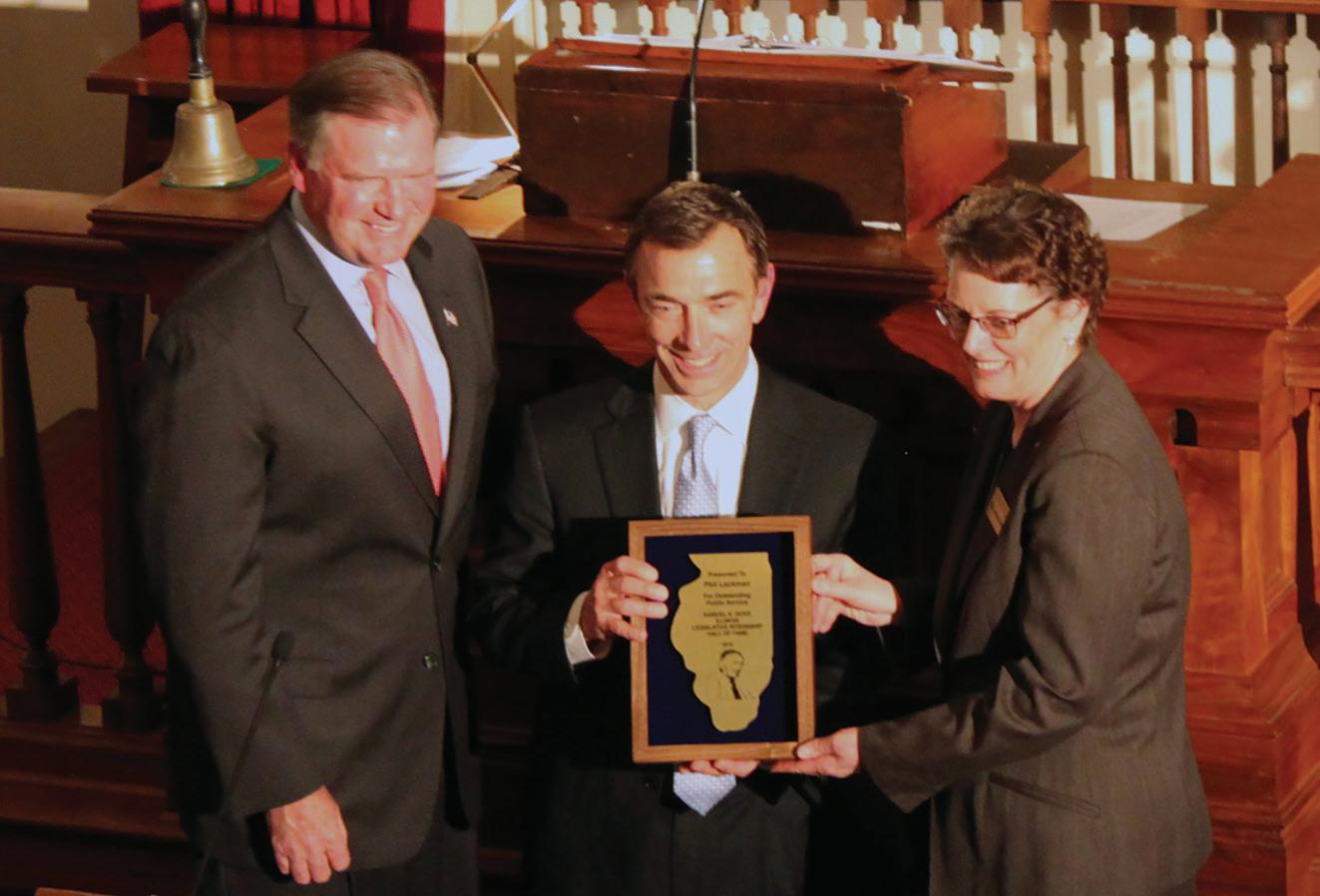





By Ryan Smith
If I wanted to hack your business, I’d start with phishing your employees. The odds would be in my favor because it is one of the easiest and most effective ways to attack someone. And I only need to be right once – while your users can’t afford a single mistake.
I don’t plan to attack you, and I hope you never fall victim to an attack. So, in that spirit, let’s help you level up your defenses in this short series and teach you what you didn’t know you needed to know about phishing emails and similar types of cyber-attacks that are designed to trick your users.


In Part 1 last month, we talked about how common phishing emails are and how much of a problem they can be. It’s no surprise that they are consistently used when you look at how many successful attacks point to them as the initial attack vector.

We won’t get deeply technical, but across these three articles, we will dive deep into why it’s still a major concern today, how phishing attacks work, and how to protect yourself.

Let’s take a closer look at how they work so we know what to watch for and to better understand what’s at stake.
Typically, they are going to ask you to do something like click a link, respond with sensitive information, or open a file. They may even ask you to send money, gift cards, or pay an invoice.

In some cases, the link you interact with may lead to a credential harvesting site that looks like a trusted login page, solely designed to pass your username and password along to the attacker.
By the way, if someone steals your credentials and you have Multi-Factor Authentication (MFA), it may not be enough to stop an attack. MFA Bypass is 100% possible, so while it’s harder to use stolen credentials when MFA is in place, there are ways to get around that. (There is never a silver bullet in cybersecurity that will be the end-all solution, it takes layers of security!)
Phishing could also involve links that go to a malicious site, open a file, or take you to a trusted file share service but with malicious contents.
However it plays out, interacting with a phishing email could result in access to one of your accounts, capturing of sensitive information, getting malware or ransomware, and secondary attacks.
It’s one of the easiest ways in because emails can be sent at scale, and it only takes one unlucky user having a bad day to end up a victim.
Phishing attacks leverage a number of techniques to try to get us to click or respond. It can include one or several of the following:
Impersonation
They may have disguised themselves by making their email look like something or someone you would trust.


For example, instead of “amazon.com”, they might use “arnazon.com” by making the lower-case RN look like an M. They can also use different characters like the “A” in “usbank. com” and “usbαnk.com”.
And, if you haven’t set up common email security configurations like SPF, DMARC, and DKIM, it can be almost impossible for a person to tell on their own that someone is “spoofing” or impersonating your email domain to make it look like their message is actually coming from your email address.


We’ll define these and explain their role in security in Part 3.
Urgency
Usually, they are going to play on emotions. They don’t want you to think for too long about things, so there’s usually a sense of urgency around their messaging, sometimes threatening consequences like getting locked out of your account, losing money, etc.
It must be effective because, according to Verizon’s 2024 Data Breach Investigations Report, phishing attacks happen fast!

Source: Verizon 2024 DBIR
Verizon found that the median time to click on a malicious link after the email is opened is 21 seconds, and then it takes only another 28 seconds to enter the data. That means the median time for users to fall for phishing emails is less than 60 seconds!


They are hoping to catch you off guard or at a time when you’re too busy and distracted to worry about what you’re doing. Some messages may just be flat out confusing, hoping you’ll bite because you aren’t sure what’s going on.
They also have ways to tell when employees are new or when they can expect you to be busy, so they hope to catch you at a time where a lack of clarity works in their favor. We all know that new employee who is eager to impress their new CEO with how quickly they can get those iTunes gift cards!

We also see this play out when links take the user to a “Credential Harvesting Site” designed to capture your username and password and that mimics another login we recognize.
The unsuspecting user just thinks: “That’s odd, I thought I was already signed in, I’ll just do it again”. And they may likely
We also see this happen when someone in the chain is compromised and the attacker sends an invoice you were expecting or asks you to change a bank account number for an upcoming transaction.
Depending on what information can be gathered in their reconnaissance phase, an attacker may use combinations of the above techniques to craft the perfectly timed email.
A great example is when there is a Business Email Compromise of a third party, and the attacker is able to jump in with a timely message asking to make a change to a deposit or sends an invoice.
Their visibility into the other party’s email allows them to know just what to do and when to do it. And, because they time it carefully, things seem to go as anticipated on your end.



Big I Illinois has partnered with RLS Consulting to help protect your agency against email phishing scams.
Don’t get “Reeled” in by phishing scams. With a set it & forget approach, you can test your staff and prepare your agency against the bad actors. Learn in real-time through simulated phishing emails how to spot them and train your staff so they are on their guard.
This program works in conjunction with other phishing email training programs you may use. Or if you don’t have one this is a great place to start. Train your employees, test their knowledge and the end result will keep your employees, your agency and your clients safer.


a division of Big I Illinois
By Shannon Churchill
Over 170 people gathered on January 30-31 for the 95th Annual Farm Agents Council (FAC) Mid-Winter Meeting at the Embassy Suites in East Peoria, IL. The event offered two days of education with six hours of CE, networking, a niche tradeshow, lots of collaboration, food, and good times.
The event kicked off with two of the FAC’s own, Trent Munson and Luke Sandrock, presenting E&O for the Crop Insurance program. Their insights and knowledge in this area provided valuable information for attendees. Friday morning, Big I Illinois team members Brett Gerger and Evan Manning were joined by Ti Chesley, Senior Advisor of the Illinois Department
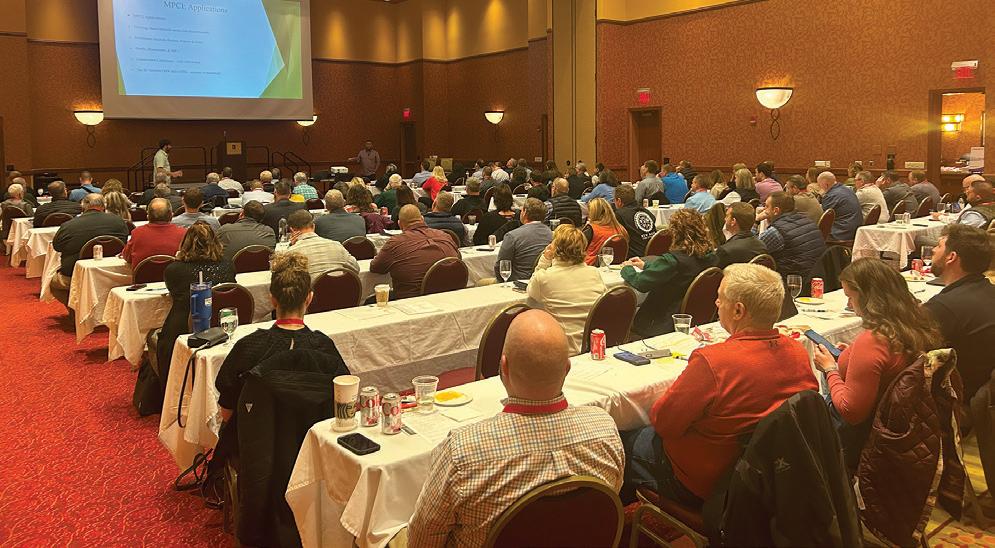
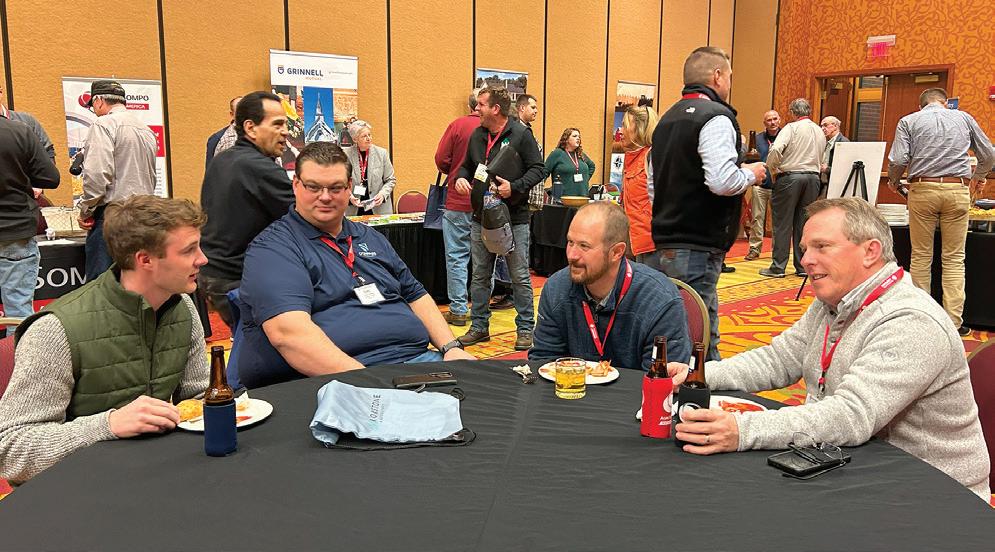
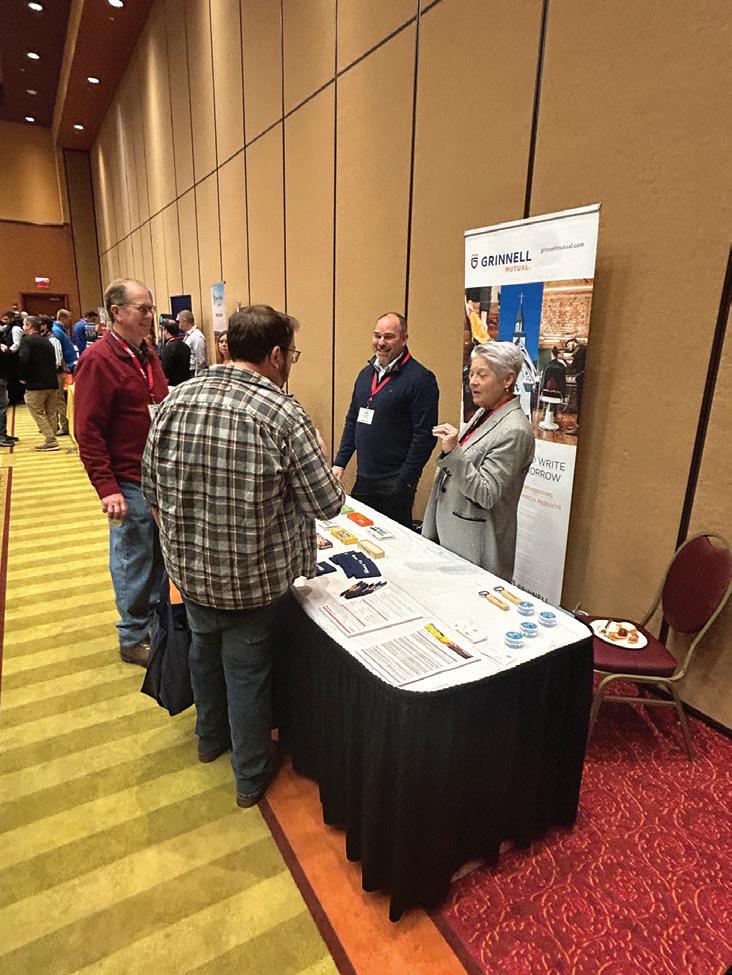
of Insurance. They shared updates on the Illinois General Assembly and legislation impacting the industry. They discussed Illinois’ shifting climate, the P&C Hard Market, and the future of insurance.
Thank you to everyone who participated in the event! We look forward to seeing you later this Summer.
If you are interested in getting involved with the FAC or learning more about our organization, email farmagents@ ilbigi.org. If you are in the crop/ag/farm industry, mark your calendar for our upcoming events and consider joining the Farm Agents Council.
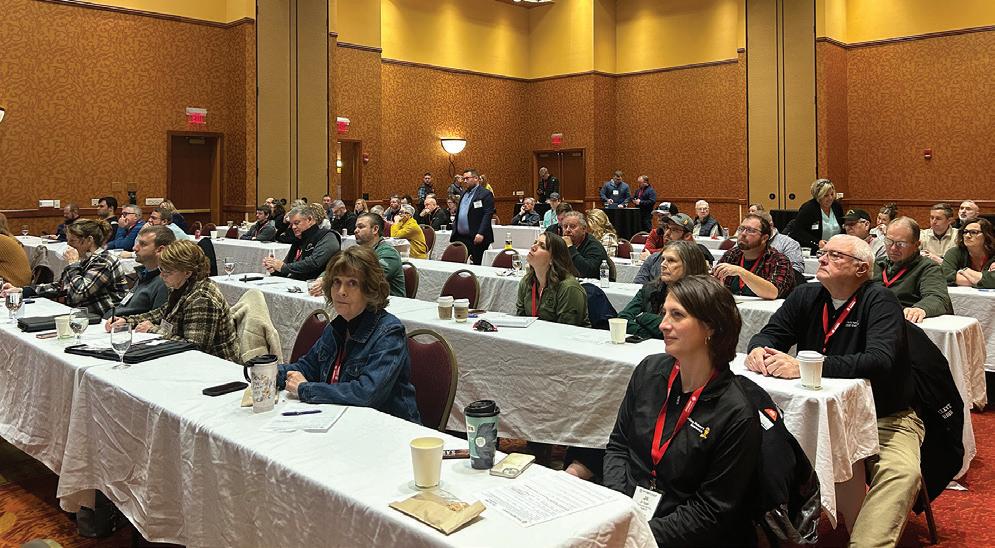
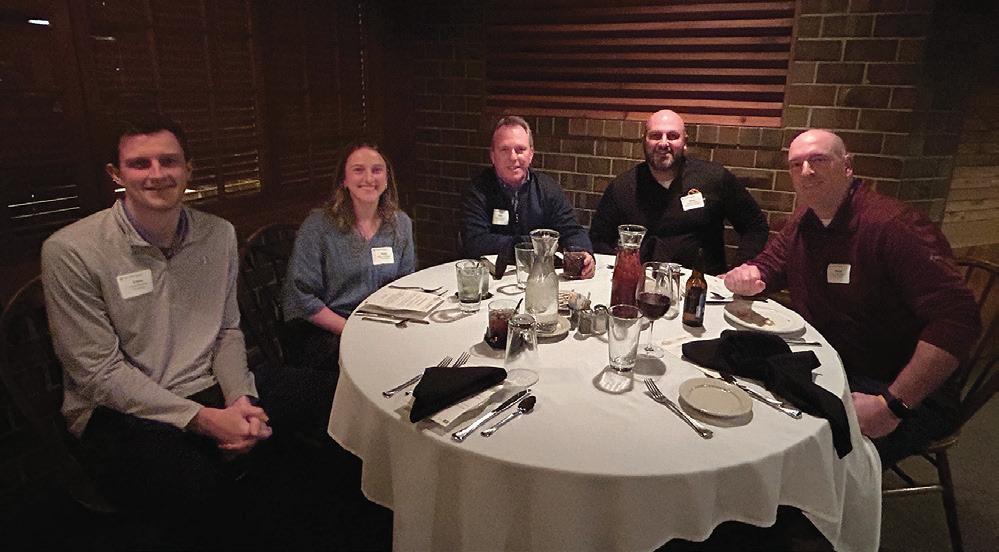
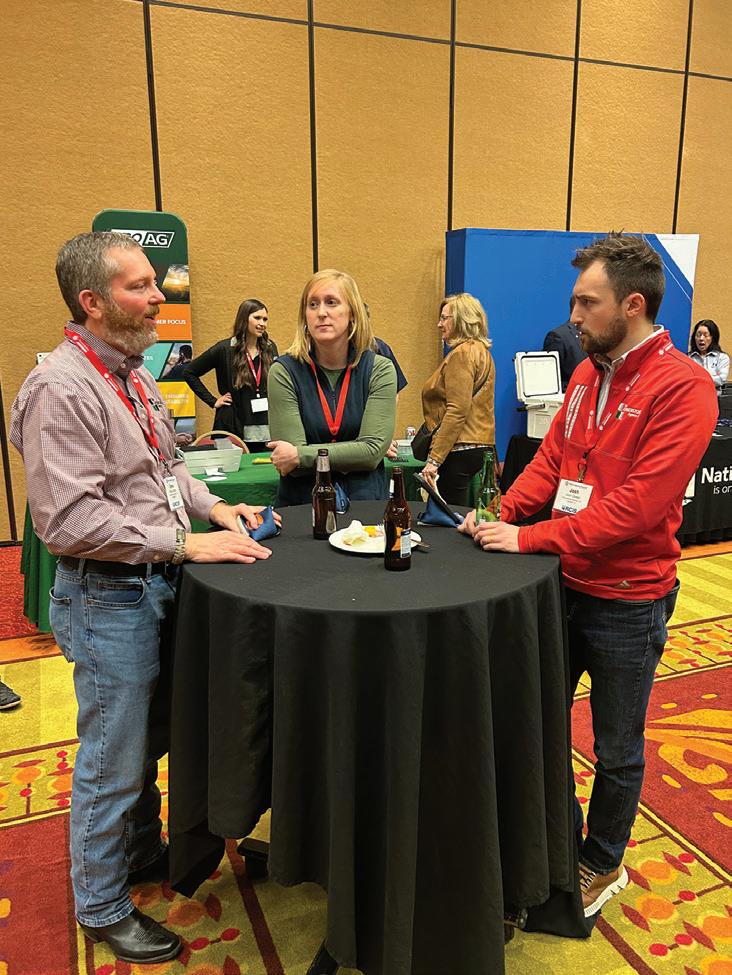
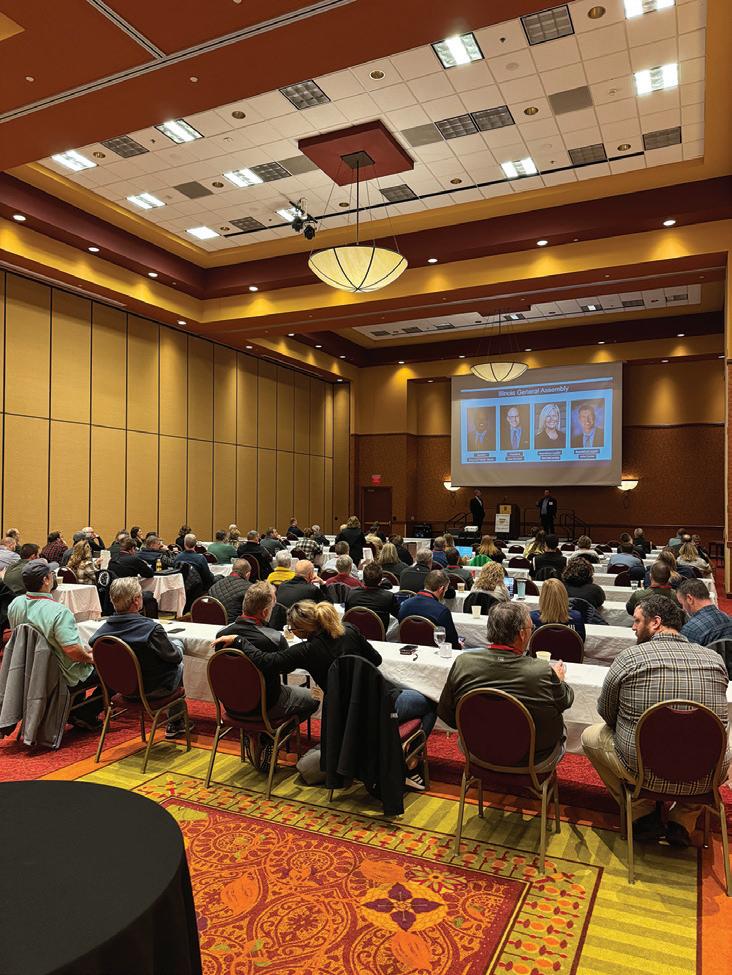
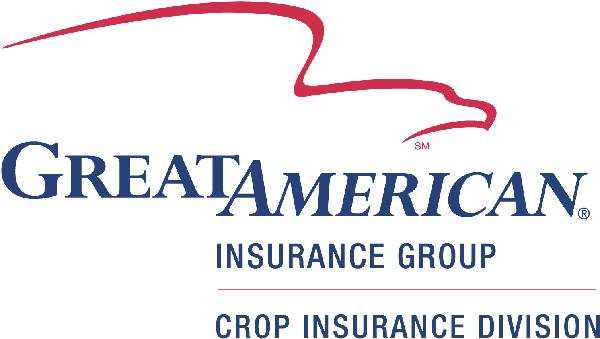

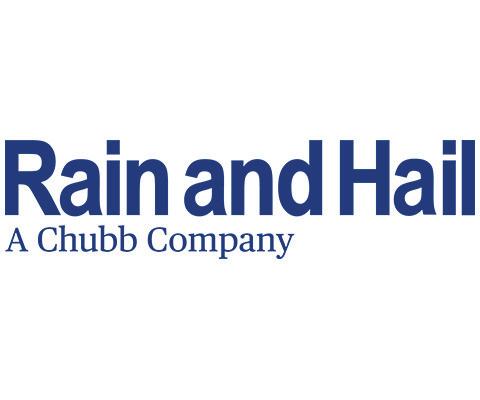

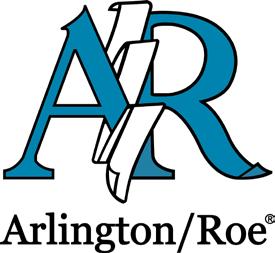
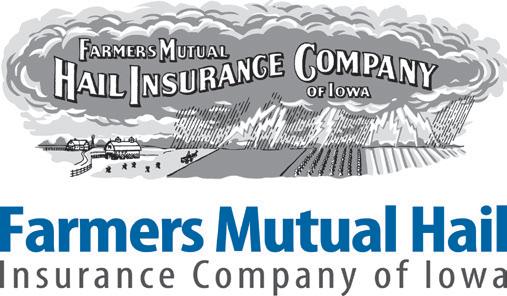
Thank you to our Associate Members.

Progressive
Surplus Line Association of Illinois
Silver Level
Arlington/Roe
Blue Cross/Blue Shield of IL
CRC Group Pekin Insurance
Keystone Insurance Group, Inc. MEM
Bronze Level
A. J. Wayne & Associates
AAA, The Auto Club Group
AMERISAFE
AmTrust Insurance
Amwins
Apollo Brokers dba Limit
Auto-Owners Insurance Co.
Berkley Small Business Solutions
Berkshire Hathaway GUARD Insurance Companies
Bliss McKnight
Boundless Rider
BriteCo Jewelry & Watch Insurance
Central Illinois Mutual Insurance Company
Chubb
Columbia Insurance Group
Cowbell Cyber
Donald Gaddis Company, Inc.
Donegal Insurance Group
EMC Insurance
Encova Insurance
Erie Insurance Group
Forreston Mutual Insurance Company
Grinnell Mutual Reinsurance Company
IA Valuations
Illinois Mine Subsidence Ins Fund
Illinois Public Risk Fund
Imperial PFS
Independent Mutual Fire Insurance Company
Indiana Farmers Insurance
Insurance Program Managers Group (IPMG)
J M Wilson
Liberty Mutual/Safeco Insurance
Madison Mutual Insurance Company
Main Street America Insurance
Mercury Insurance Group
Midwest Insurance Company
Nationwide
Paychex HR and Payroll Solutions
Rockford Mutual Ins. Co.
SECURA Insurance
ServiceMaster DSI
Society Insurance
SPRISKA - Specialty Risk of America
Summit Insurance
Travelers
W. A. Schickedanz Agency, Inc./Interstate Risk Placement
West Bend Insurance Company
Western National Insurance
Westfield
XPT Specialty

April 9-10 - East Peoria, IL
Par-A-Dice Hotel & Casino
Powered by:
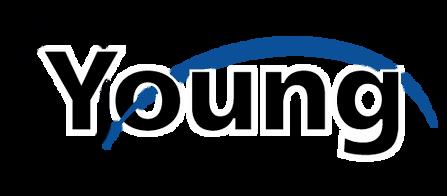
As an insurance professional, you’re the trusted protector — safeguarding what matters most to your clients: their families, their businesses, their future. But even heroes need the right allies, tools, and training to succeed.


For this year's Sales & Leadership Conference, we’re assembling expert guides, cutting-edge tools, and a powerful network to help you sharpen your skills, build stronger connections, and elevate your impact.
Master the Art of Trust & Communication
Learn strategies to connect with clients and overcome challenges.
Sharpen Your Sales Skills
Improv techniques that help you think fast and close deals.
Harness the Power of AI & Technology
Boost efficiency and productivity with cuttingedge tools.
Expand Your Network & Connect with Exhibitors
Build alliances that help your agency thrive. Join the Action at

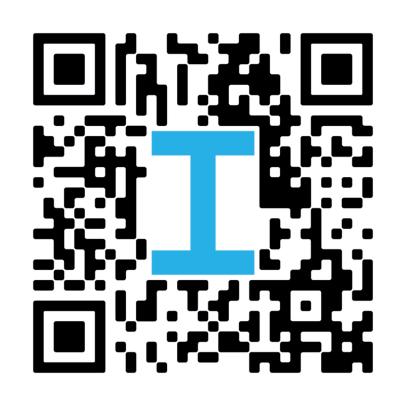
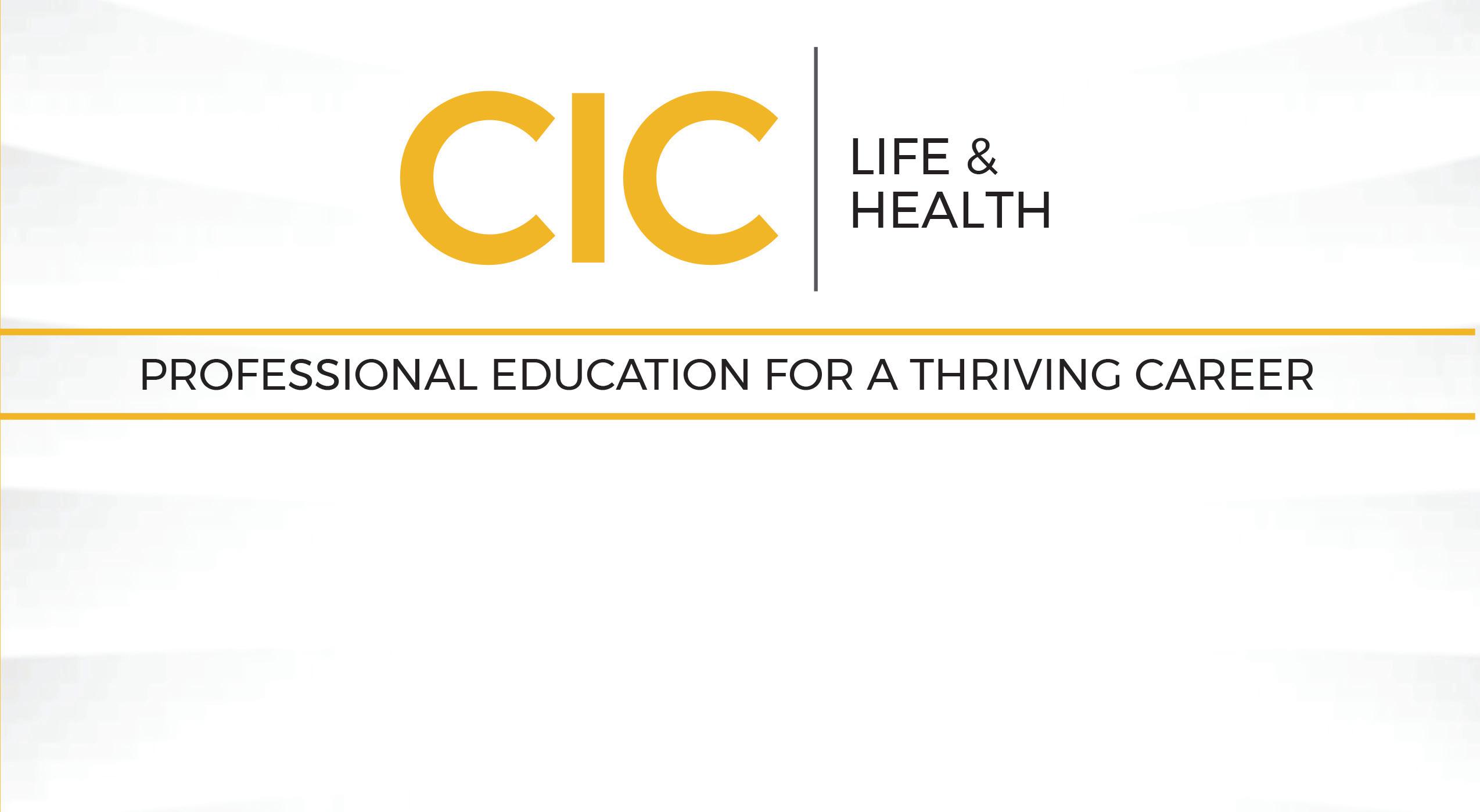
Virtual Class
16 hours of IL CE credit
CE Available in other States, contact Big I Illinois for details
In the CIC Life and Health course, you will learn practical information related to Life and Annuity Policies, Business Life Concepts, Health Insurance, and Employee Benefits. What are the basic characteristics, provisions, and riders found in most life, health, and retirement contracts? Learn how to target these financial products to meet your client’s personal and business needs. Leave the class with information that you can put to use immediately.
ilbigi.org/education
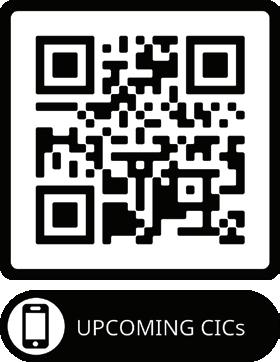

Cavalea Insurance Agency, Inc. Plainfield, IL
StarNet Insurance Group Mount Prospect, IL
Way Insurance Services, LLC Galesburg, IL
For information regarding Big I Illinois membership or company sponsorship, contact Lori Mahorney, Director of Membership Services, at (217) 321-3008, lmahorney@ilbigi.org.


23. Are you looking for an exit strategy while still continuing to produce for a few years or are you ready to sell now? Paczolt Insurance would like to talk with you! We are an independent agency dating back to the 1970s that is located in the western suburbs. Our focus is on mid-to-small commercial accounts and personal lines. Our companies include EMC, Badger Mutual, Safeco, Progressive, and Travelers. We have the flexibility and capital to get a deal done. Contact:
Susan Troppito Paczolt Insurance susan@piaigroup.com (708) 215-5202
28. Are you an agent who owns their book and would like to reduce your overhead cost? Are you currently with a large agency and want less office politics? We have office space available and all of the tools needed to move your book of business, along with the carrier relationships. Full agency management system, VoIP phones and client support staff. Located in the Springfield, IL area. All discussions will be held in strict confidence.
For more information, contact Tami Hubbell, Big I Illinois, at thubbell@ilbigi.org.
02. Forest Park/Oak Park agency for over 60 years, will meet your needs by providing space, markets, marketing & sales support, automation, merging with or purchasing your agency. Perpetuation/ Succession Plans, Buy-Sell Agreements also available. We have experienced, educated and dedicated staff for you and your clients. Have access to our numerous companies, office services and many other resources. Please look closely at us- we are an agency you want to do business with! We’ve done it before, we know how- we make it easy! Visit our website at forestagency.com/agents.html, or call for a confidential discussion and a list of Agency benefits.
Dan Browne will provide an agency evaluation/appraisal at little cost to you. Please call:
Dan Browne or Cathy Hall Forest Insurance/Relation Insurance Services (708) 383-9000
www.forestinsured.com/mergers-acquisitions
20. Since 2004, Central Illinois Agents Group LLC has been providing independent agents with a variety of markets with contingency opportunities. Agents have availability to several markets that they may not be able to sustain or maintain on their own. We have markets for personal, commercial, agricultural and crop insurance lines. Let us help you get to the next level.
Visit www.ciagonline.com for contact information.





